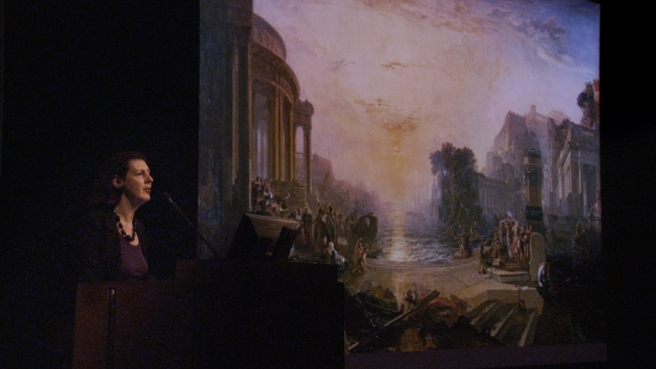
Playing for the next two weeks at the SIFF Uptown is Russian director Alexander Sokurov’s look at The Louvre, a companion piece to what remains his most well-known film in this country, 2002’s Russian Ark. That film, shot in an elaborate and still impressive single-take, weaved through The Hermitage, the museum in St. Petersburg, crossing seamlessly through Russia’s past and present, a guided tour of the fluidity of culture and the ways art, and our collections of art, keep the past alive into the future. Francofonia is no less thematically ambitious, though the single-take approach is abandoned in favor of more conventional shifts between documentary-style glides through the galleries, dramatic recreations, and meta making-of looks at those recreations. The film is framed with a film director (Sokurov himself) in the editing stage of the movie we’re watching, attempting to talk to a ship’s captain caught in a storm at sea (Captain Dirk, seriously). The ship is apparently transporting precious works of art, an extension of the final image of Russian Ark, with the museum as a ship floating in seas of time. Captain Dirk has a bad Skype connection, so the director ruminates about the museum itself, covering, in somewhat random order, its founding as an anti-Viking fortress, its various expansions and decorations, its transformation into a museum filled with the spoils of imperialism and finally its modern state. Taking up the bulk of the film is the story of how the museum’s director (Jacques Jaujard) and the Nazi in charge of cultural artifacts (Franz Wolff-Metternich) kept the collection safe and out of Hitler’s hands during the Second World War.







